Costa Blanca
Dozens of illegal immigrants relocated to a hotel in Guardamar
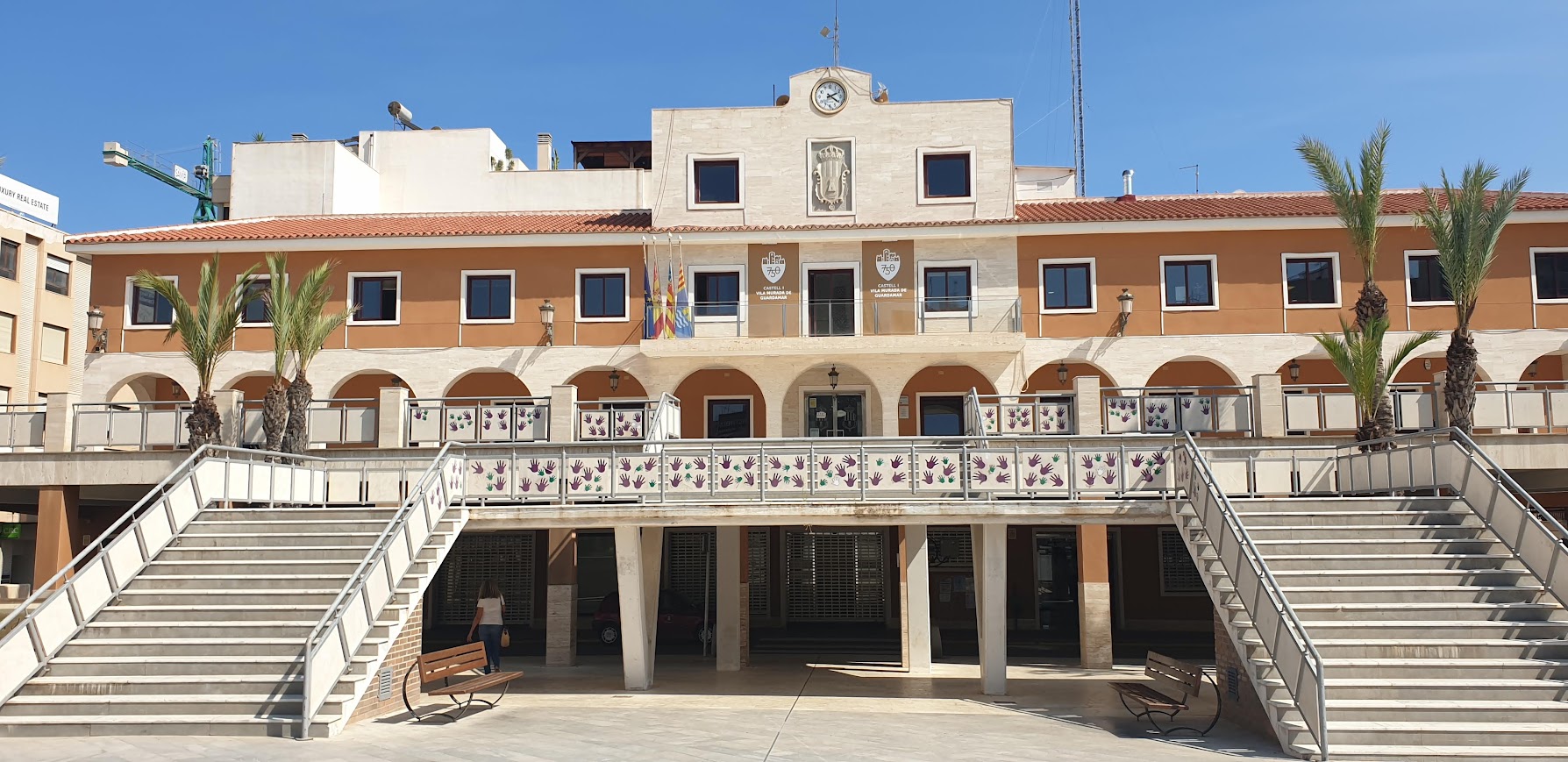
A group of immigrants who were previously housed in the Alicante town of Guardamar del Segura has been relocated to the Parquemar Premium Beach Hotel, a four-star establishment where hundreds of them were already accommodated last year. Numerous residents have expressed their dissatisfaction with the decision, as they anticipate additional disruptions.
Socialist José Luis Sáez, the mayor of the town, announced the initiative on social media. He stated that the program presently houses 30 families with children attending the municipality’s primary and secondary schools. They originate from a variety of countries, including Egypt, Mali, Jordan, Paraguay, Ukraine, and Mauritania. He asserts that the new location will provide “a stable and dependable environment” in which the residents can adjust to their new circumstances with assistance in a variety of fields, such as legal, psychological, and training.
In spite of this, her post has provoked criticism from certain residents. One resident in the comments enquires, “Why don’t they transfer people from Valencia who have lost everything in the Dana?” Another user recalls the issues that were previously caused by the presence of immigrants at this hotel, which resulted in sexual assaults and battles against the complex’s employees.
Sources indicate the measure is in accordance with the unanimous decision of the proprietors’ association of the Europa House complex, where they were previously situated, to discontinue the hosting of children at their facilities.
Some residents are concerned about the potential for a surge in disturbances involving North African residents with the advent of Easter, due to the new site’s proximity to the town centre. “They shift the problem from one place to another, but don’t provide a permanent solution,” they express disappointment. The proprietors of the previous site are “tired of the daily disturbances,” according to additional sources.
Altercations and protests
The coastal town has experienced months of tension, which has culminated in the transfer. A protest in front of Guardamar City Hall in January was attended by nearly 200 immigrants who were demanding adjustments in their living conditions. The local police and the Guardia Civil managed the demonstration, which resulted in public unrest in the town.
The sheltered residents have expressed concerns regarding the administration of the NGO Cepaim, which is responsible for their care. They have complained of overcrowding and a lack of resources. Additionally, they demand that the promises they were purportedly made be fulfilled, which include Spanish nationality and employment.
The tense climate in Guardamar is not a recent development. Sexual assaults and abuse allegedly committed by immigrants residing in the town were reported in the previous months. Two immigrants of Venezuelan and Mali origin attacked two labourers at the Parquemar resort, where they were residing. Additionally, a pub bouncer and a young male from the vicinity were reported to have been beaten. Nevertheless, the mayor characterised these incidents as “isolated” and refuted the notion that the town’s security was in jeopardy.
Inadequate resources and political criticism
Ángel Delfín, the spokesperson for Vox at the City Council, maintained that his party had previously issued warnings regarding the negative consequences of the mass reception of immigrants. “When we issued warnings regarding potential consequences, they labelled us as racists,” he stated in an interview with El Debate. Delfín also observed that immigrants are dissatisfied due to the fact that they were promised expedited legalisation, which has not occurred.
Marisol Gallud, the municipal spokesperson for the Popular Party, expressed her concern and sadness regarding the town’s inaugural socialist mayor’s lack of control. She also encouraged him to be “transparent” and refrain from portraying himself as a victim.
The Socialist mayor, on the other hand, characterised the residents’ coexistence as “exquisite” and stated that he had requested reinforcements from the Guardia Civil due to concerns regarding potential “racist outbreaks.” He also downplayed the assaults perpetrated by groups of North Africans in his town.
Residents and the opposition are currently anticipating this action, with the expectation that it will not result in additional insecurity in the town of Alicante.
Discover more from Costa Blanca Daily
Subscribe to get the latest posts sent to your email.
Costa Blanca
FGV will allocate 1.4 million euros to cleaning the rolling stock and workshops of the Alicante TRAM
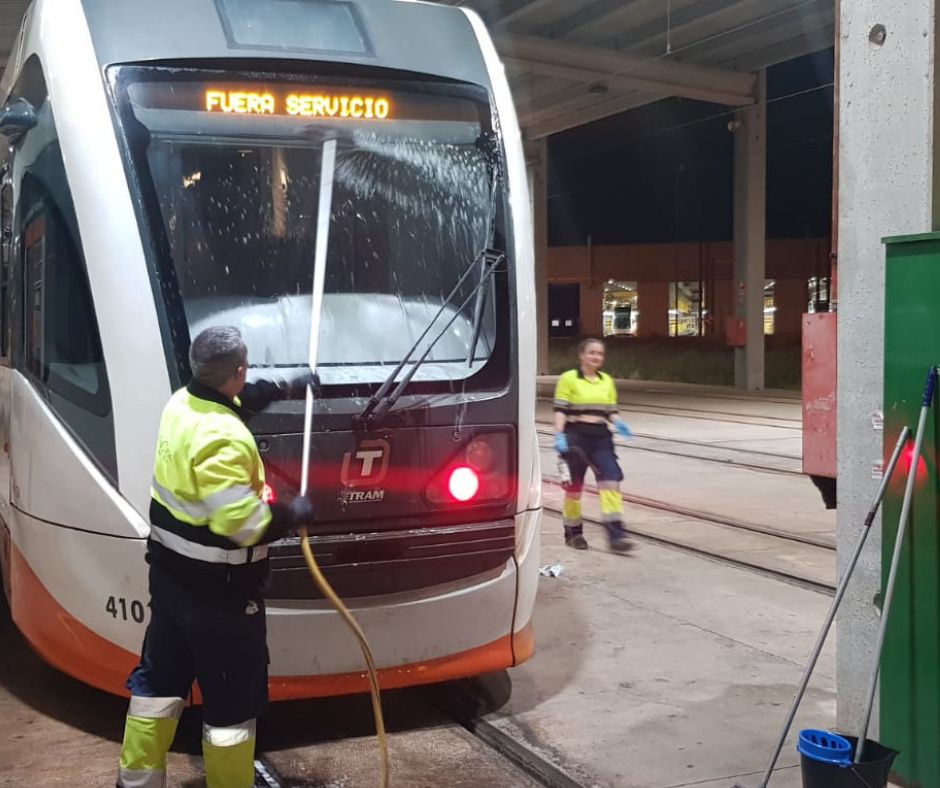
Ferrocarrils de la Generalitat Valenciana (FGV) will allocate €1,415,203.59 to clean the rolling stock and workshops of Alicante TRAM for a period of one year from the commencement of the contract, which also includes the possibility of an additional year’s extension.
The contracted services ensure the quality and frequency of the necessary cleanings, both daily and non-daily, as well as any unforeseen incidents or problems, such as graffiti or any other form of vandalism, by considering all the requirements associated with the cleaning of TRAM d’Alacant’s rolling stock and workshops.
At present, the rolling stock of TRAM d’Alacant comprises 37 units: 22 Bombardier 4200 series trams; 9 TRAM trains from the former Vossloh España company, which is now Stadler Rail Valencia; and 6 dual-drive (electro-diesel) trains from Stadler Rail Valencia, which are manufactured in Albuixech. These trains were retired after the modernisation work on Line 9 between Benidorm and Dénia was completed.
The 37 units for maintenance are housed in the three facilities that are currently available: El Campello, Benidorm, and Dénia.
Discover more from Costa Blanca Daily
Subscribe to get the latest posts sent to your email.
Costa Blanca
Police in Alicante train officers to patrol on motorcycles with greater safety and efficiency

This week, nearly twenty agents from Alicante, Elche, Benidorm, Castellón, and Valencia have participated in a National Police course on motorcyclist safety specialisation.
The objective of the course developed in Alicante by the national police’s road training unit is to “ensure that all colleagues are safer and provide a more efficient service to the “citizenship,” according to officer Jose Manuel Paniagua, one of the four instructors from Madrid, Valencia, and Castellón who have taught the course.
The instructors have been instructing fifteen unit agents of prevention and reaction (UPR) on how to patrol more safely on their large-displacement motorcycles, which weigh between 160 and 200 kilogrammes each.
Paniagua has emphasised the importance of technical mastery of the vehicle in various scenarios, as well as visual planning and anticipation.
In order to achieve this, they have been conducting closed-circuit exercises on a track and on provincial roads with curved sections. Some of the exercises that are practiced in the course include emergency braking, changing direction and curve paths, getting on and off moving motorcycles and stops, and conducting low-level escorts while maintaining balance without putting your feet on the ground.
The instructor asserts that the course enables the participants to “improve the defects or vices they have when driving,” despite the fact that the majority of them are seasoned agents who provide service to the Alicante Motorcycle Groups and other cities in the province.

The course is derived from the English Driving Style, which has been embraced by numerous security forces and organisations worldwide. “It is a model that prioritises anticipation, security, and vehicle control, without compromising efficiency or reaction capacity,” explains Paniagua.
Instructors prioritise three fundamental aspects in their interactions with the agents: the agents’ feet and their position while driving, the use of brakes, and the gaze. The gaze is considered crucial for safety, as it provides the driver with anticipation.
Motorcycles enable the National Police to respond more promptly to emergencies; however, they also pose a greater risk to police officers. The objective of the course is to guarantee the safety of officers while they are serving and travelling. Consequently, the instructors emphasised to the police that they are unable to assist anyone if they do not arrive at the correct location.
The officer also concludes that the agents have been trained in the fundamental skills of stress management, decision-making under pressure, and reading the environment, which are necessary to intervene in actual scenarios without compromising the safety of oneself or others.
Discover more from Costa Blanca Daily
Subscribe to get the latest posts sent to your email.
Costa Blanca
Alcampo to close 25 stores in Spain with the loss of 710 jobs across 13 regions

Auchan, a French retail chain that operates in Spain under the Alcampo brand, has announced its intention to close 25 stores throughout the country, which will result in the loss of 710 jobs.
According to reports, the decision is the consequence of evolving consumer preferences, which have led to an increasing preference for online purchases and smaller stores over traditional large-scale supermarkets.
The company is concentrating its strategy on the expansion of smaller store formats and the reinforcement of its digital retail channels in order to adjust to these changes.
The restrictions are scheduled to occur in 13 regions of Spain, including Madrid, Valencia, Galicia, Navarra, La Rioja, and Asturias.
Approximately 23,300 individuals are presently employed by Auchan in Spain. On May 8, labour unions were informed of the restructuring plan’s specifics during a meeting.
The organisation declared, “It is imperative to achieve sustainable growth and recover results in each and every shop during this transformation process.” This is the reason why Alcampo is implementing a staff modification plan, a decision that is both responsible and essential, despite its difficulty.
Auchan has not yet publicly identified the specific stores that are scheduled for closure, despite the fact that the CCOO trade union in Spain has reported obtaining a list of affected outlets, which includes several of its hypermarkets.
CCOO commented on the circumstance, stating, “This is the entirety of the information that the company has furnished us with.” The subsequent phase of this procedure, which was initiated by Alcampo management, is the establishment of a collective dismissal negotiating committee.
Auchan is required to submit all pertinent documentation during the initial meeting in order for union representatives to evaluate and commence negotiations, according to the union.
The union concluded, “At CCOO, we will confront this challenging situation, which is novel to the company, with the explicit understanding that the primary goal is to preserve employment and, in the event that employees depart, to guarantee that they do so in the most favourable manner possible.”
In late 2018, Auchan made the decision to eliminate over 2,000 positions in France as part of a broader restructuring initiative designed to stimulate development. This announcement is a continuation of that decision.
Discover more from Costa Blanca Daily
Subscribe to get the latest posts sent to your email.
-
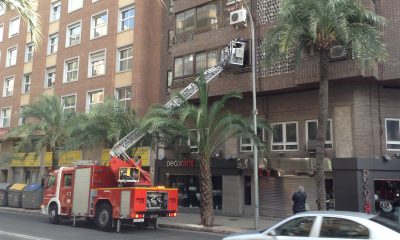
 Costa Blanca2 weeks ago
Costa Blanca2 weeks agoFire Consortium carried out 65 rescues and transported people to hospitals in the province of Alicante
-
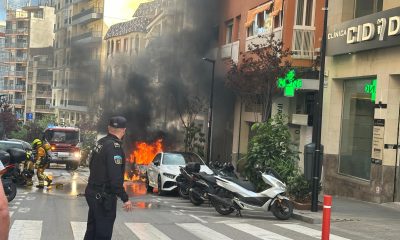
 Costa Blanca2 weeks ago
Costa Blanca2 weeks agoA municipal vehicle was engulfed in a terrifying fire in the heart of Calpe
-

 Costa Blanca2 weeks ago
Costa Blanca2 weeks agoResidents of El Mojón in Pilar de la Horadada will receive mail at their homes
-
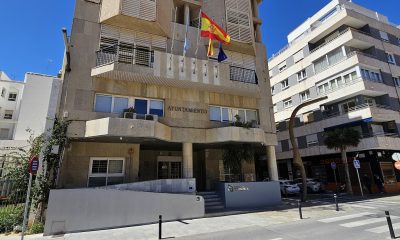
 Costa Blanca2 weeks ago
Costa Blanca2 weeks agoGreen light for drafting of park-and-ride parking project in Torrevieja
-

 Costa Blanca2 weeks ago
Costa Blanca2 weeks ago27 members of the Mara Salvatrucha gang arrested in Madrid, Barcelona, Tarragona, and Guardamar
-

 Costa Blanca2 weeks ago
Costa Blanca2 weeks agoAena closed the first quarter of 2025 with a profit of 301.3 million euros
-

 Costa Blanca2 weeks ago
Costa Blanca2 weeks agoElche prohibits the sale and consumption of sunflower seeds to protect the Martínez Valero stadium
-

 Costa Blanca2 weeks ago
Costa Blanca2 weeks agoShock plan for the housing crisis in the Valencian Community










